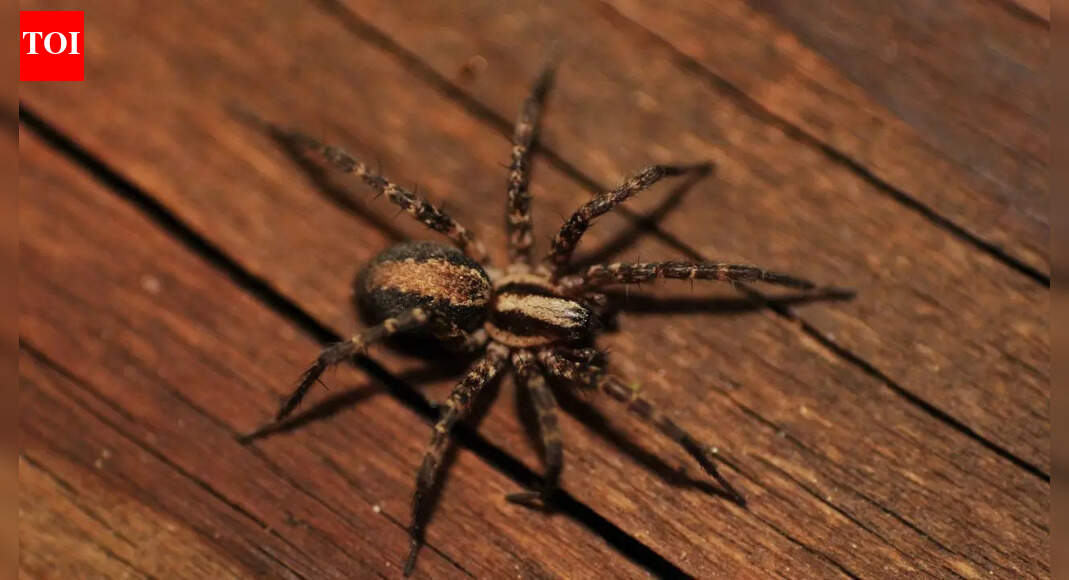
Spiders are common household visitors that often appear unexpectedly, causing discomfort and anxiety for many homeowners. While it may seem like they arrive out of nowhere, the truth is that certain habits and environmental factors in your home can make it especially appealing to these eight-legged intruders. Spiders are naturally drawn to areas that provide food, shelter, and moisture, and they are skilled at exploiting even small oversights in home maintenance. From leaving lights on outside to cluttered yards and humid bathrooms, everyday mistakes can unintentionally create a welcoming environment for spiders. Understanding the specific conditions that attract them is key to preventing infestations. By identifying and correcting these mistakes, you can make your home less inviting to spiders and maintain a safer, cleaner, and more comfortable living space.
7 common mistakes that are secretly attracting spiders into your home
Leaving outdoor lights on attracts insects and spider prey
Outdoor lights are often essential for safety, but leaving them on unnecessarily can create a problem. Lights attract a variety of flying insects such as moths, flies, and mosquitoes. These insects, in turn, become a constant food supply for spiders. Spiders tend to build webs around these light sources to take advantage of the steady availability of prey. Over time, this can result in a spider population clustering close to your home. To reduce this risk, use motion-sensor or timer-controlled lights, or consider smart lighting solutions that limit constant illumination while maintaining security.
Letting bathrooms get too steamy creates humid hiding spots
Bathrooms are often overlooked when it comes to spider prevention. Hot showers and baths produce steam, raising humidity levels and creating a warm, moist environment. While spiders do not drink water directly, they are attracted to these humid areas because moisture helps them survive and supports other small insects that they feed on. Poorly ventilated bathrooms can become an ideal hunting ground for spiders. To reduce the risk, ensure your bathroom has proper ventilation by using exhaust fans, opening windows, or leaving doors slightly open after bathing to allow moisture to escape.
Owning too many houseplants provides shelter and breeding grounds
Indoor plants can make a home more vibrant and inviting, but they also provide spiders with perfect hiding places. Plants create a sheltered environment free from natural predators, allowing spiders to set up egg sacs safely and hunt for insects that live in the soil or foliage. Dense clusters of houseplants may offer undisturbed spaces where spiders can thrive without being noticed. Limiting the number of indoor plants, maintaining spacing, and regularly checking the leaves and soil for insects or webs can help prevent spiders from using plants as long-term habitats.
Keeping debris in your yard encourages spiders to move indoors
Yard clutter, including leaves, fallen branches, unused garden tools, and toys, can create ideal conditions for spiders to build webs. Spiders prefer undisturbed areas where they can hide and hunt, and piles of debris provide numerous nooks and crevices for them to establish themselves. Wood piles stored close to the house are particularly problematic, as they can host both web-building and hunting spiders. Maintaining a clean, organised yard, clearing fallen leaves, and storing wood away from the home’s perimeter will help reduce spider hiding spots and limit their migration indoors.
Allowing standing water and excess moisture attracts spider prey
Standing water, damp corners, and water leaks not only attract mosquitoes and flies but also draw spiders that feed on these insects. Moist areas create an indirect chain reaction that encourages spider activity. Puddles, clogged gutters, or overly damp soil near foundations make your home more appealing to spiders because they can find both shelter and prey nearby. Addressing water accumulation, repairing leaks, and keeping outdoor areas dry are essential steps to making your home less attractive to spiders.
Not cleaning up regularly provides food and hiding spots
Neglecting regular cleaning allows spiders to locate abundant food sources and secure hiding spots. Dusty corners, cluttered shelves, and items stored near walls give spiders a place to hide while providing access to insects that serve as prey. Regular cleaning, decluttering, and inspecting indoor and outdoor spaces remove both spiders and the insects they feed on. Focus on areas such as under eaves, around pillars, and near outdoor furniture, as well as storage spaces and rarely used corners, to prevent spiders from establishing a foothold.
Skipping regular pest control allows populations to grow unchecked
Preventive pest control is a crucial step in keeping spiders at bay. Professional pest control programs usually involve inspecting your property for problem areas, removing existing webs, and treating areas to reduce both insect prey and spider populations. Without proactive measures, spiders can multiply quickly, and infestations may become difficult to control. Regular preventive pest control, even when spider sightings are minimal, creates a consistent barrier against these unwelcome visitors and helps maintain a spider-free home environment.By recognising these common mistakes and taking corrective measures, you can significantly reduce the likelihood of spiders entering and thriving in your home. Controlling moisture, maintaining clean and clutter-free spaces, managing outdoor lighting, and using preventive pest control measures are practical strategies that make your home less hospitable to spiders while keeping it safe and comfortable for your family.Also Read: How to clean pigeon poop from your balcony: Effective tips to remove droppings







